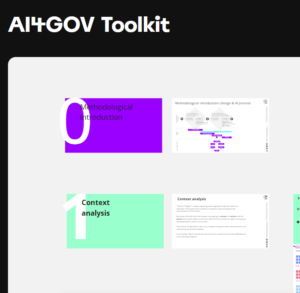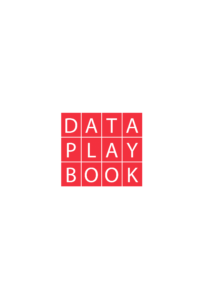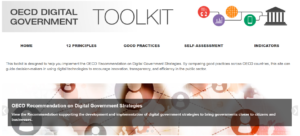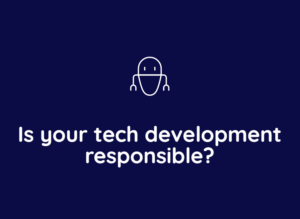Digital Transformation refers to a process of adoption of digital tools and methods by an organisation, typically those that have either not been including the digital factor as part of their core activities or have not kept up with the pace of change in digital technologies.
Digitisation is viewed as a new source of growth, efficiency, or relevance in an increasingly digital world. This usually includes new communication and service delivery channels (including via mobile devices) with internal and external users, data-informed decision making and business processes based on larger and larger volumes of data, enhanced human resources capabilities and new procurement mechanisms.
While the practice of digital transformation in private sector organisations has more tangible drivers (efficiency gains, market share, profit, etc.) and often more immediate results, the practice of digital transformation in government must also consider public purpose and involves additional factors of ownership and persistence of public data (especially identity), data security and privacy, digital service accessibility for everyone, and public digital literacy.
Principles
- Data-driven or data-informed decision-making – building consensus based on evidence
- Openness – enabling transparency and access of information, sometimes by default
- Design-driven – following a cycle of discovery, prototyping and delivery
- Iterative – incorporating more agile working methods and rapid feedback cycles
- User-focused – starting with user needs and testing early and often
- Interoperability – maintaining an ability to share data and functions across systems
- Privacy and security – preventing unauthorised access to systems and data
See the OECD’s 12 Digital Government Principles
Considerations for use in the public sector
After taking the path of “e-government” and digitisation of paper-based processes, many governments have now shifted focus to a whole-organisation approach to digital—or at least recognised the need.
In many cases, a digital transformation project is likely to implicate many other processes and systems, requiring that digital be considered closer to organisations’ core functions and improve its ability to quickly reconfigure itself. This change is often seized as an opportunity to partially if not integrally redefine the organisation’s main goals, its unique public value, to sunset obsolete and habit-sustained roles and functions and cope with new levels of demands coming from service users and the public.
A specific challenge regarding public sector’s digital transformation involves the ability to hire new types of talent and integrate digital related tools, methods, strategies and culture not only into strategies and plans but also in daily habits. This ability is challenged by the scarcity of talent in specific fields: data analysts and data scientists are often recruited by private companies with more attractive wage offers. The need for new profiles exceeds strictly digital-related jobs, and have to do with new ways of designing and delivering services: from user experience and user interface experts to ideation and strategic vision catalysts, a wide array of skills and expertise play a role. None existed when public administrations appeared; most did not exist five years ago.
Beyond the cultural challenges, organisations face major technical challenges of migrating from legacy systems, many of which involve critical data or perform essential functions. The disparities in adaptive capacity and “technology debt” can be quite large between startups and large organisations.
In addition, governments are also coping with how to address emerging technologies, such as blockchain and artificial intelligence. The challenge for governments is three-fold: how might governments incorporate these new technologies for their own public purposes, how should governments address the use of these technologies in the private sector; and how do these new technologies affect the functions, expectations upon and role of governments in societies that are transforming. “Disruption” is often associated with digital transformation and emerging technologies since they can affect integral organisational infrastructure, create extreme disparities between organisations, impact human and organisational relationships, affect markets, set new implicit rules and create entirely new forms of value.
Typical methods and tools
Methods and tools for digital transformation can vary widely depending on the depth of the organisational interest. For improvements in service delivery, digital service and product design methods work well. For digital transformations that affect an organisations core functions or have the ability to impact public purpose or offerings, organisational and strategic design methods should also be considered.
Some typical digital transformation practices or methods include:
- Information architecture
- Service design
- User experience design
- Agile
- Product management
- Interaction design
- Data science
- Computer science & engineering
Related OECD guidance
Recommendation of the Council on Digital Government Strategies
OECD Digital Government Toolkit
What to consider when choosing a digital transformation toolkit
If you are developing an overall digital strategy, consider toolkits that contextualise or help with approach planning. Or consider strategic design or organisational design toolkits. Keep in mind that part of your strategy or set of solutions may end up being non-digital.
If you are developing or improving discrete digital services to solve a problem, consider service design and product design toolkits and methods, since many of these were developed with digital in mind
Some toolkits are better suited to policymakers or managers overseeing a digital transformation initiative or portfolio while other toolkits are better suited to practitioners doing the tactical digital transformation work.
Some toolkits touch on skills and behaviours important for digital transformations. Skills and team formation is important, so browse toolkits that reference team formation or collaboration. You can also explore our guidance on building a team or partnership.
There are several toolkits that specifically deal with open data, including developing data ecosystems. Some of these were created in an open government context, so that is also a topic to explore.
View all digital transformation related toolkits
Related topics
Would you like some help?
How well-versed are you with applying digital transformation tools and methods? Do you have experience with applying these approaches in practise? If not, then the language and complexity of the working methods can be daunting. Find help and connect to a digital transformation expert who has practical experience in addressing public sector challenges. But be aware so that you do not get sucked into applying their favourite method.
Learn about building skills and capacity
Find OPSI network members who are working with digital transformation
Reach out to OPSI for guidance with digital transformation
Request a webinar on this topic – top-requested topics will be prioritised






